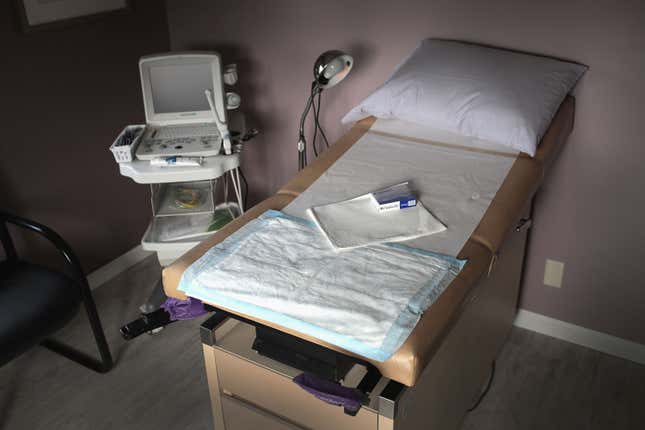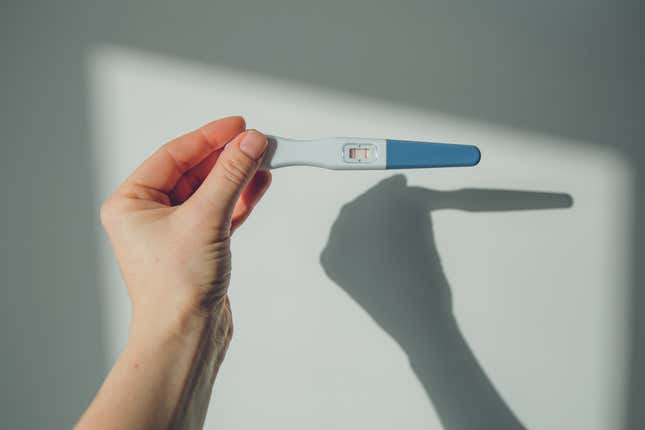How Crisis Pregnancy Centers Help Anti-Abortion Legislatures
Some state-funded "crisis pregnancy centers" have contracts with states to collect the data of callers seeking abortion care.
AbortionPolitics

Earlier this week, within hours of leaked news that the Supreme Court intends to overturn Roe v. Wade, VICE’s Motherboard reported that a location data firm had been selling the private information of people visiting abortion clinics. The firm soon announced it would discontinue this practice, but the concerns it sparked stand: Are people seeking abortion care being surveilled? The short answer is yes.
And it’s not just private data firms that are collecting, storing, and potentially distributing abortion seekers’ data. It’s also state-funded “crisis pregnancy centers,” or CPCs—anti-abortion organizations that lure primarily poor people of color with unwanted pregnancies to their premises, and aggressively try to dissuade them from having abortions.
“Crisis pregnancy centers are basically the ultimate movement building tool of the anti-abortion movement,” Kim Clark, an attorney at the gender justice legal advocacy group Legal Voice, told Jezebel. Legal Voice is part of The Alliance: State Advocates for Women’s Rights and Gender Equality, which recently released a study that exposes the extensive surveillance of fake clinics and their nationwide networks.
Some of these “clinics” even have contracts with state governments to help collect data from callers seeking abortion care, in a conjoined effort to stalk, possibly criminalize, and force people to give birth. And because, in most cases, they provide no actual health care, they notably aren’t subject to the patient privacy standards set by HIPAA.
In February, Oklahoma became the latest in a string of states that have introduced or enacted legislation to require that pregnant people seeking abortion care consult with a CPC or anti-abortion “care agent.” In Oklahoma’s bill and several other states’ bills, abortion seekers are then assigned a “unique identifying number” that must be added to their medical record and tracked in a database maintained by the state. A law like this passed Arkansas’ legislature last February and is also under consideration in Alabama and Texas. Similarly, an Iowa bill (also introduced last February) would give CPCs funding to target pregnant people online. This model of legislation was directly introduced to state legislators by the anti-abortion crisis pregnancy center network, Human Coalition.
As recently as Monday, Ohio directed an additional $1.5 million to fake clinics. And at the end of April, Iowa passed a bill to offer a tax credit to those who donate to CPCs.
-

-

-

-

-

-

-

-

-

-

-

-

-

-

-

-

-

-

-

-

-

-

-

-

-

-

-

-

-

-

-

-

-

-

-

-

-

-

-

-









































